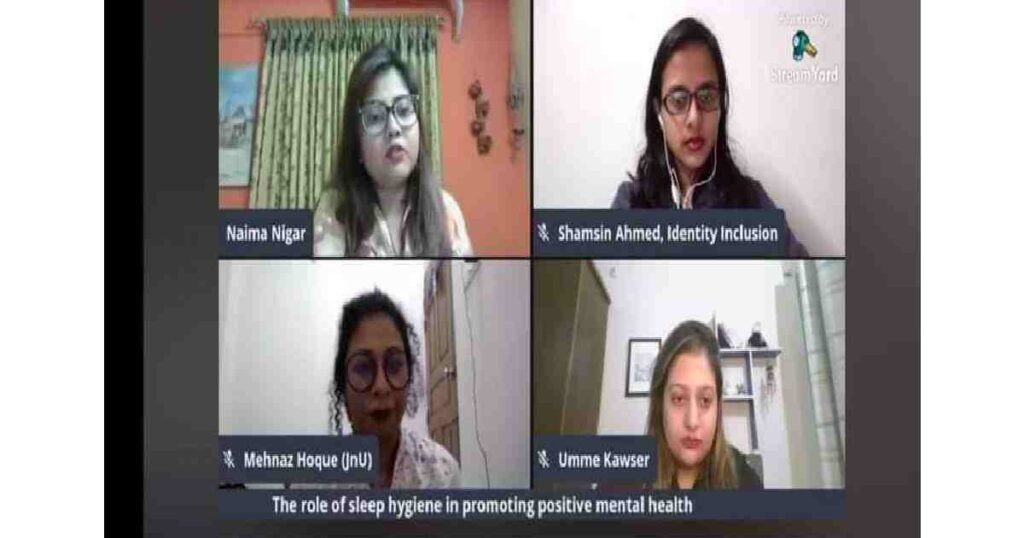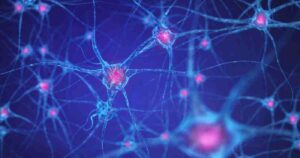Speakers at a webinar have said there is a complex relationship between sleep and mental state; and in many cases, insomnia is responsible for various types of mental illness. They, however, said people also suffer from insomnia due to some mental problems.
The 12th episode of Dialogue for Action was organized on Sunday night by ACTIONISTS on the necessity for sleep and sleep hygiene to protect mental health titled “The role of Sleep Hygiene in promoting positive mental health” The Role of Parents”.
Mehnaz Haque, Lecturer, Department of Mass Communication and Journalism, Jagannath University, Naima Nigar, Assistant Professor at Department of Psychology University of Dhaka; Umme Kawser, Assistant Professor and Educational Psychologist at Department of Educational and Counselling Psychology, University of Dhaka and Shamsin Ahmed Founder, CEO and Lead Consultant Inclusion attended it, said a media release on Monday.
During the discussion, Naima Nigar said the most common practice of sleeping disorder is insomnia. She said people often feel this problem even if they are not affected by it.
“However, any type of sleep problem is very important in our daily life, because regular sleep affects our mental health, personal behavior due to which we face various problems such as rude behavior, depression, depression, anxiety and many more mental problems.”
She said sleeping disorders affect people’s learning processes. Without regular sleep, the human brain can have a devastating effect on daily life, including taking in new information, making quick and complex decisions.
Samsin Ahmed, in the context of solving various problems related to sleep, said it is not possible to solve this problem in one day.
“In this regard children need to be made aware of proper sleep practice including sleep hygiene.” Umme Kawsar said that the reason for insomnia is that it is possible to say a specific reason.
She said there are many reasons for insomnia, such as disturbing the brain through mobile or electronics screen use, increasing body temperature, reducing caffeine, taking various shortcuts.
“Such as alcohol consumption, sleeping pills etc. To solve this problem, she said, follow a nice sleep routine, read books before going to bed, listen to music, meditate, take hot milk, etc. Above all, everyone presented various research reports about this problem and suggested 7-9 hours of sleep daily.”
She also advised to seek the help of a psychiatrist or doctor without taking this problem lightly. The webinar was moderated by A.N.M Fakhrul Amin, Founder and Executive Director, ACTIONISTS.
source: UNB




